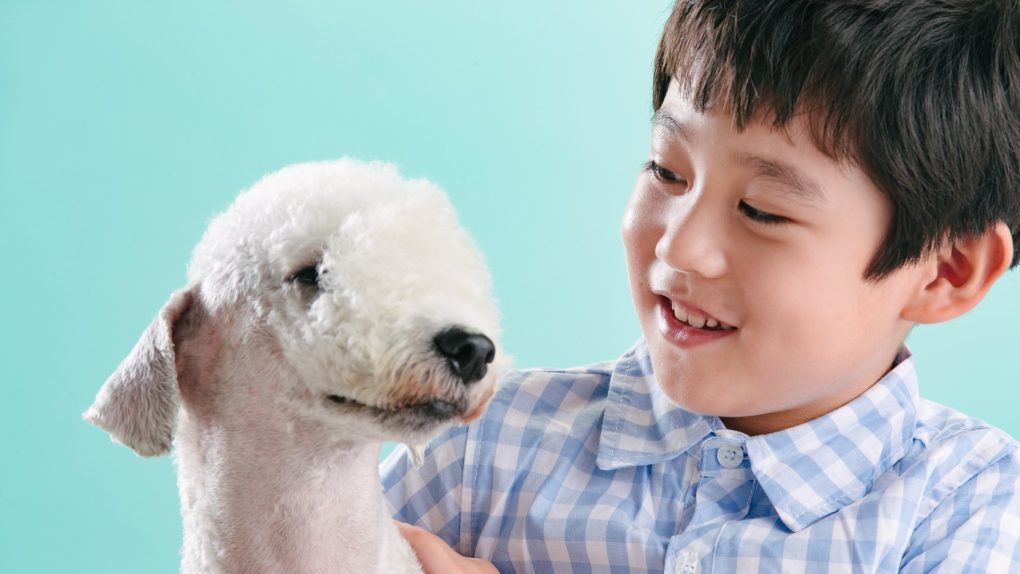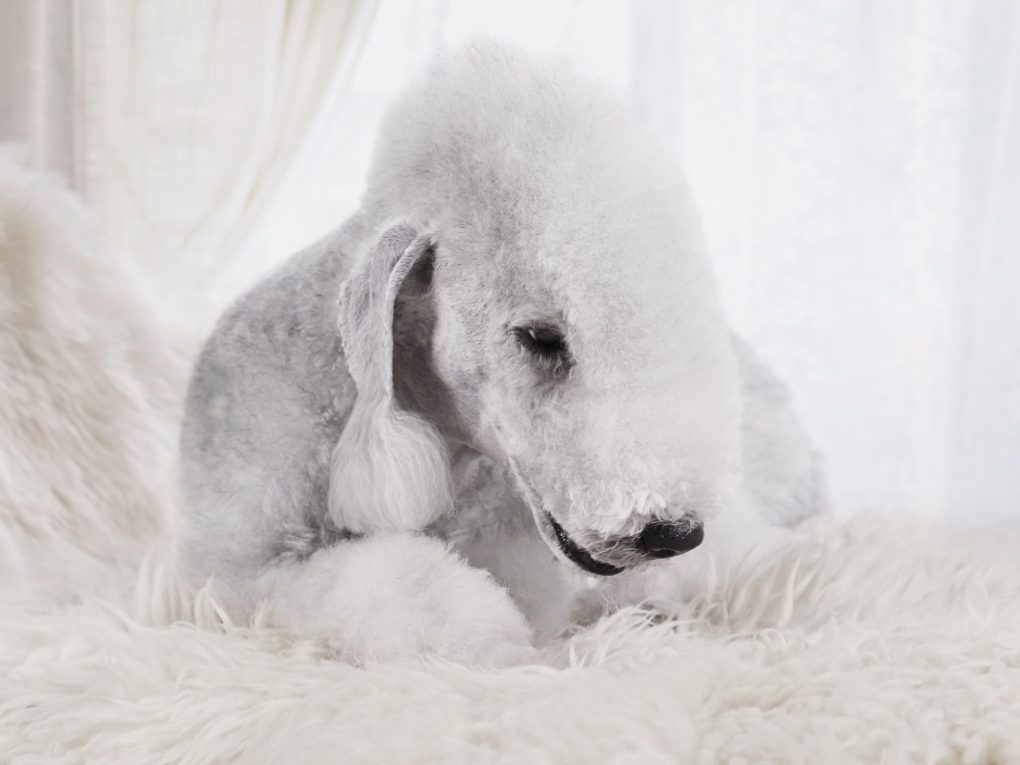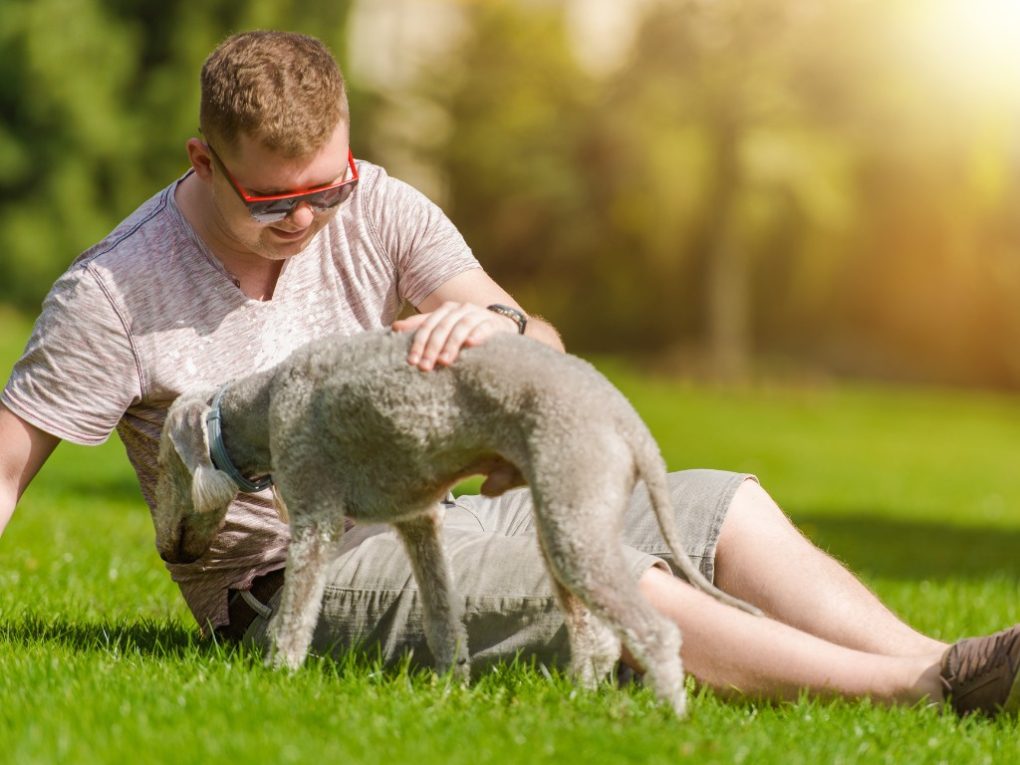Are Bedlington Terriers Aggressive? Here’s What You Need to Know
Bedlington Terriers are generally not aggressive. These dogs are famous for their amicable and loving personality, which makes them ideal as family pets. They usually get along well with children and other pets in the household.


However, it is important to remember that a dog’s temperament can be influenced by various factors such as genetics, upbringing, and socialization. Therefore, it is crucial to provide proper training, socialization, and consistent reinforcement of appropriate behavior from a young age to prevent any potential aggressive behavior.
Table of Contents
Defining Aggression
Aggression is a complex behavior that can manifest in different ways in dogs. It can range from growling, barking, and biting to more subtle signs such as stiff body language, raised hackles, and avoidance. In general, aggression is a response to a perceived threat or challenge, and it can be triggered by various factors such as fear, anxiety, frustration, or territoriality.
Understanding Bedlington Terrier Temperament
Bedlington Terriers are a terrier breed originally bred in England for hunting vermin and badgers. They have a distinctive appearance, with a curly, woolly coat, arched back, and graceful gait that has been compared to that of a Whippet. Bedlington Terriers are known for their friendly and affectionate temperament and are often described as loyal and courageous companions.
However, Bedlington Terriers have unique personality traits and tendencies like all dogs. They can be stubborn and independent, requiring firm and consistent training and socialization from an early age to prevent behavioral problems. Bedlington Terriers are also known for their high energy level and need for exercise and mental stimulation, which can lead to destructive behavior if not properly addressed.
Factors that Contribute to Aggression in Bedlington Terriers
While Bedlington Terriers are not known for being aggressive, they can exhibit aggressive behavior under certain circumstances. For example, some factors that can contribute to aggression in Bedlington Terriers include:
- Lack of socialization: Bedlington Terriers not exposed to various people, animals, and environments from a young age may become fearful or defensive in new situations, leading to aggression.
- Poor training: Bedlington Terriers need to be trained to obey basic commands and boundaries may become dominant or overprotective, leading to aggression.
- Resource guarding: Bedlington Terriers possessive of their food, toys, or territory may become aggressive when they feel threatened or challenged.
- Fear or anxiety: Bedlington Terriers exposed to traumatic events or stressful situations may develop fear or anxiety, leading to defensive or aggressive behavior.


It is important to note that aggression in dogs is not always predictable or preventable and can result from a combination of genetic, environmental, and individual factors. However, responsible ownership and training can go a long way in preventing or managing aggressive behavior in Bedlington Terriers.
Preventing Aggression in Bedlington Terriers
Bedlington Terriers are generally friendly and affectionate dogs, but like any other breed, they can exhibit aggressive behavior if they are not properly socialized and trained. Here are some tips for preventing aggression in Bedlington Terriers:
Early Socialization and Training
Early socialization and training are crucial for preventing aggression in Bedlington Terriers. Exposing them to various people, animals, and environments from a young age is important to help them develop a confident and friendly personality. Puppy classes and obedience training can also help them learn basic commands and good manners.
Providing Exercise and Mental Stimulation
Bedlington Terriers are active dogs that need regular exercise and mental stimulation to prevent boredom and destructive behavior. Providing them with daily walks, playtime, and interactive toys can help keep them physically and mentally healthy.


Grooming and Health Care
Regular grooming and health care are important for preventing aggression in Bedlington Terriers. Their unique curly coat requires regular brushing, trimming, and clipping to prevent matting and skin irritation. They are also prone to certain health issues such as copper toxicosis and allergies, so it is important to provide them with regular veterinary care and a healthy diet.
Professional Training and Support
If your Bedlington Terrier is exhibiting aggressive behavior, seeking professional training and support is important. A professional dog trainer or behaviorist can identify the underlying cause of aggression and develop a customized training plan to address it. They also provide support and guidance throughout the training process.
In conclusion, preventing aggression in Bedlington Terriers requires early socialization and training, providing exercise and mental stimulation, regular grooming and health care, and professional training and support when necessary. Following these tips can help your Bedlington Terrier become a well-behaved and friendly companion.
Conclusion
Bedlington Terriers are generally not an aggressive breed. While every dog is unique and may display aggressive behavior in certain situations, Bedlington Terriers are known for their friendly and affectionate nature.
However, it is important to note that proper socialization and training from a young age is crucial for any dog, including Bedlington Terriers. This can help prevent any potential aggressive behavior from developing.
